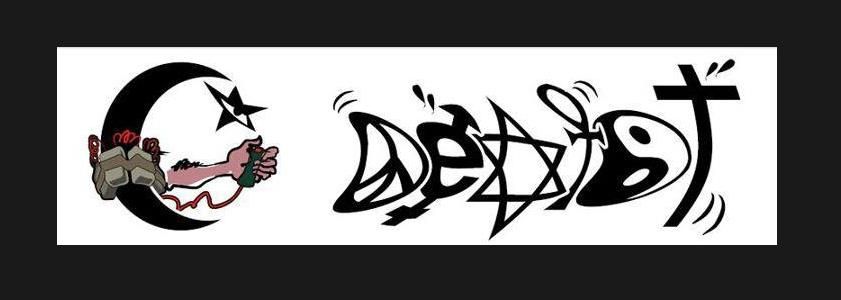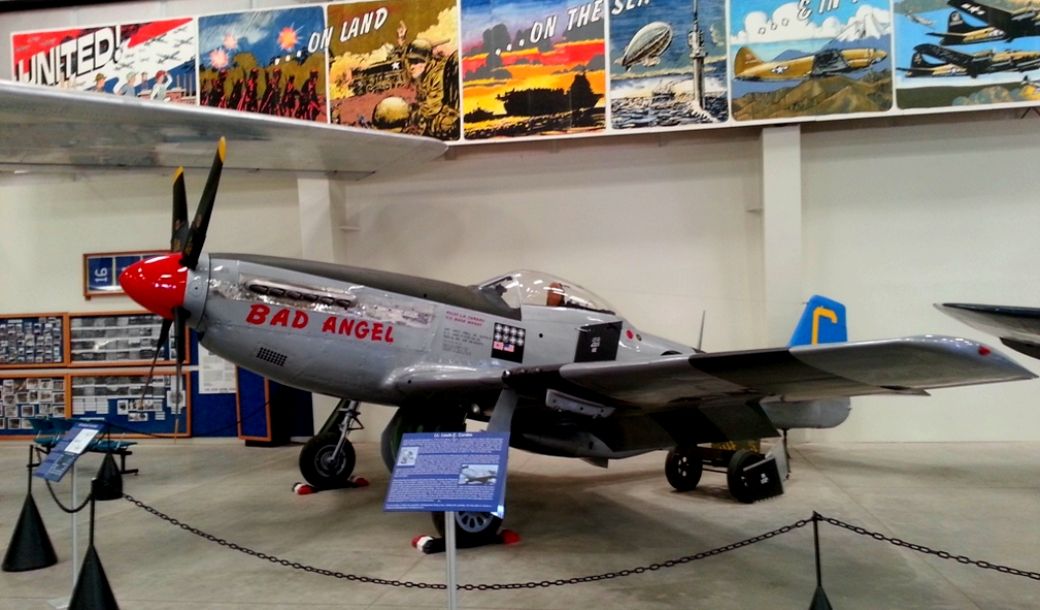In my 76th year, the events of my life appear to me, from time to time, as a series of vignettes. Some were significant; most were trivial.
War is the seminal event in the life of everyone that has endured it. Though I fought in Korea and the Dominican Republic and was wounded there, Vietnam was my war.
Now 37 years have passed and, thankfully, I rarely think of those days in Cambodia , Laos , and the panhandle of North Vietnam where small teams of Americans and Montangards fought much larger elements of the North Vietnamese Army. Instead I see vignettes: some exotic, some mundane:
*The smell of Nuc Mam.
*The heat, dust, and humidity.
*The blue exhaust of cycles clogging the streets.
*Elephants moving silently through the tall grass.
*Hard eyes behind the servile smiles of the villagers.
*Standing on a mountain in Laos and hearing a tiger roar.
*A young girl squeezing my hand as my medic delivered her baby.
*The flowing Ao Dais of the young women biking down Tran Hung Dao.
*My two years as Casualty Notification Officer in North Carolina , Virginia , and Maryland.
It was late 1967. I had just returned after 18 months in Vietnam. Casualties were increasing. I moved my family from Indianapolis to Norfolk , rented a house, enrolled my children in their fifth or sixth new school, and bought a second car.
A week later, I put on my uniform and drove 10 miles to Little Creek, Virginia. I hesitated before entering my new office. Appearance is important to career Marines. I was no longer, if ever, a poster Marine. I had returned from my third tour in Vietnam only 30 days before. At 5’9″, I now weighed 128 pounds – 37 pounds below my normal weight. My uniforms fit ludicrously, my skin was yellow from malaria medication, and I think I had a twitch or two.
I straightened my shoulders, walked into the office, looked at the nameplate on a Staff Sergeant’s desk and said, “Sergeant Jolly, I’m Lieutenant Colonel Goodson. Here are my orders and my Qualification Jacket.”
Sergeant Jolly stood, looked carefully at me, took my orders, stuck out his hand; we shook and he asked, “How long were you there, Colonel?” I replied “18 months this time.” Jolly breathed, “Jesus, you must be a slow learner Colonel.” I smiled.
Jolly said, “Colonel, I’ll show you to your office and bring in the Sergeant Major. I said, “No, let’s just go straight to his office.” Jolly nodded, hesitated, and lowered his voice, “Colonel, the Sergeant Major. He’s been in this G*dd@mn job two years. He’s packed pretty tight. I’m worried about him.” I nodded.
Jolly escorted me into the Sergeant Major’s office. “Sergeant Major, this is Colonel Goodson, the new Commanding Office. The Sergeant Major stood, extended his hand and said, “Good to see you again, Colonel.” I responded, “Hello Walt, how are you?” Jolly looked at me, raised an eyebrow, walked out, and closed the door.
I sat down with the Sergeant Major. We had the obligatory cup of coffee and talked about mutual acquaintances. Walt’s stress was palpable. Finally, I said, “Walt, what’s the h-ll’s wrong?” He turned his chair, looked out the window and said, “George, you’re going to wish you were back in Nam before you leave here.. I’ve been in the Marine Corps since 1939. I was in the Pacific 36 months, Korea for 14 months, and Vietnam for 12 months. Now I come here to bury these kids. I’m putting my letter in. I can’t take it anymore.” I said, “OK Walt. If that’s what you want, I’ll endorse your request for retirement and do what I can to push it through Headquarters Marine Corps.”
Sergeant Major Walt Xxxxx retired 12 weeks later. He had been a good Marine for 28 years, but he had seen too much death and too much suffering. He was used up.
Over the next 16 months, I made 28 death notifications, conducted 28 military funerals, and made 30 notifications to the families of Marines that were severely wounded or missing in action. Most of the details of those casualty notifications have now, thankfully, faded from memory. Four, however, remain.
MY FIRST NOTIFICATION
My third or fourth day in Norfolk , I was notified of the death of a 19 year old Marine. This notification came by telephone from Headquarters Marine Corps. The information detailed:
*Name, rank, and serial number.
*Name, address, and phone number of next of kin.
*Date of and limited details about the Marine’s death.
*Approximate date the body would arrive at the Norfolk Naval Air Station.
*A strong recommendation on whether the casket should be opened or closed.
The boy’s family lived over the border in North Carolina , about 60 miles away. I drove there in a Marine Corps staff car. Crossing the state line into North Carolina , I stopped at a small country store / service station / Post Office. I went in to ask directions.
Three people were in the store. A man and woman approached the small Post Office window. The man held a package. The Storeowner walked up and addressed them by name, “Hello John. Good morning, Mrs. Cooper.”
I was stunned. My casualty’s next-of-kin’s name was John Cooper!
I hesitated, then stepped forward and said, “I beg your pardon. Are you Mr. and Mrs. John Copper of (address.)
The father looked at me – I was in uniform – and then, shaking, bent at the waist, he vomited. His wife looked horrified at him and then at me. Understanding came into her eyes and she collapsed in slow motion. I think I caught her before she hit the floor.
The owner took a bottle of whiskey out of a drawer and handed it to Mr. Cooper who drank. I answered their questions for a few minutes. Then I drove them home in my staff car. The storeowner locked the store and followed in their truck. We stayed an hour or so until the family began arriving.
I returned the storeowner to his business. He thanked me and said, “Mister, I wouldn’t have your job for a million dollars.” I shook his hand and said; “Neither would I.”
I vaguely remember the drive back to Norfolk . Violating about five Marine Corps regulations, I drove the staff car straight to my house. I sat with my family while they ate dinner, went into the den, closed the door, and sat there all night, alone.
My Marines steered clear of me for days. I had made my first death notification.
THE FUNERALS
Weeks passed with more notifications and more funerals.. I borrowed Marines from the local Marine Corps Reserve and taught them to conduct a military funeral: how to carry a casket, how to fire the volleys and how to fold the flag.
When I presented the flag to the mother, wife, or father, I always said, “All Marines share in your grief.” I had been instructed to say, “On behalf of a grateful nation.” I didn’t think the nation was grateful, so I didn’t say that.
Sometimes, my emotions got the best of me and I couldn’t speak. When that happened, I just handed them the flag and touched a shoulder. They would look at me and nod. Once a mother said to me, “I’m so sorry you have this terrible job.” My eyes filled with tears and I leaned over and kissed her.
ANOTHER NOTIFICATION
Six weeks after my first notification, I had another. This was a young PFC. I drove to his mother’s house. As always, I was in uniform and driving a Marine Corps staff car. I parked in front of the house, took a deep breath, and walked towards the house. Suddenlythe door flew open, a middle-aged woman rushed out. She looked at me and ran across the yard, screaming “NO! NO! NO! NO!”
I hesitated. Neighbors came out. I ran to her, grabbed her, and whispered stupid things to reassure her. She collapsed. I picked her up and carried her into the house. Eight or nine neighbors followed. Ten or fifteen later, the father came in followed by ambulance personnel. I have no recollection of leaving.
The funeral took place about two weeks later. We went through the drill. The mother never looked at me. The father looked at me once and shook his head sadly.
ANOTHER NOTIFICATION
One morning, as I walked in the office, the phone was ringing. Sergeant Jolly held the phone up and said, “You’ve got another one, Colonel.” I nodded, walked into my office, picked up the phone, took notes, thanked the officer making the call, I have no idea why, and hung up. Jolly, who had listened, came in with a special Telephone Directory that translates telephone numbers into the person’s address and place of employment.
The father of this casualty was a Longshoreman. He lived a mile from my office. I called the Longshoreman’s Union Office and asked for the Business Manager. He answered the phone, I told him who I was, and asked for the father’s schedule.
The Business Manager asked, “Is it his son?” I said nothing. After a moment, he said, in a low voice, “Tom is at home today.” I said, “Don’t call him. I’ll take care of that.” The Business Manager said, “Aye, Aye Sir,” and then explained, “Tom and I were Marines in WWII.”
I got in my staff car and drove to the house. I was in uniform. I knocked and a woman in her early forties answered the door. I saw instantly that she was clueless. I asked, “Is Mr. Smith home?” She smiled pleasantly and responded, “Yes, but he’s eating breakfast now. Can you come back later?” I said, “I’m sorry. It’s important, I need to see him now.”
She nodded, stepped back into the beach house and said, “Tom, it’s for you.”
A moment later, a ruddy man in his late forties, appeared at the door. He looked at me, turned absolutely pale, steadied himself, and said, “Jesus Christ man, he’s only been there three weeks!”
Months passed. More notifications and more funerals. Then one day while I was running, Sergeant Jolly stepped outside the building and gave a loud whistle, two fingers in his mouth…. I never could do that… and held an imaginary phone to his ear.
Another call from Headquarters Marine Corps. I took notes, said, “Got it.” and hung up. I had stopped saying “Thank You” long ago.
Jolly, “Where?”
Me, “Eastern Shore of Maryland. The father is a retired Chief Petty Officer. His brother will accompany the body back from Vietnam.”
Jolly shook his head slowly, straightened, and then said, “This time of day, it’ll take three hours to get there and back. I’ll call the Naval Air Station and borrow a helicopter. And I’ll have Captain Tolliver get one of his men to meet you and drive you to the Chief’s home.”
He did, and 40 minutes later, I was knocking on the father’s door. He opened the door, looked at me, then looked at the Marine standing at parade rest beside the car, and asked, “Which one of my boys was it, Colonel?”
I stayed a couple of hours, gave him all the information, my office and home phone number and told him to call me, anytime.
He called me that evening about 2300 (11:00PM). “I’ve gone through my boy’s papers and found his will. He asked to be buried at sea. Can you make that happen?” I said, “Yes I can, Chief. I can and I will.”
My wife who had been listening said, “Can you do that?” I told her, “I have no idea. But I’m going to break my ass trying.”
I called Lieutenant General Alpha Bowser, Commanding General, Fleet Marine Force Atlantic, at home about 2330, explained the situation, and asked, “General, can you get me a quick appointment with the Admiral at Atlantic Fleet Headquarters?” General Bowser said, “George, you be there tomorrow at 0900. He will see you.”
I was and the Admiral did.. He said coldly, “How can the Navy help the Marine Corps, Colonel.” I told him the story. He turned to his Chief of Staff and said, “Which is the sharpest destroyer in port?” The Chief of Staff responded with a name.
The Admiral called the ship, “Captain, you’re going to do a burial at sea. You’ll report to a Marine Lieutenant Colonel Goodson until this mission is completed.”
He hung up, looked at me, and said, “The next time you need a ship, Colonel, call me. You don’t have to sic Al Bowser on my ass.” I responded, “Aye Aye, Sir” and got the h-ll out of his office.
I went to the ship and met with the Captain, Executive Officer, and the Senior Chief. Sergeant Jolly and I trained the ship’s crew for four days. Then Jolly raised a question none of us had thought of. He said, “These government caskets are air tight. How do we keep it from floating?”
All the high priced help including me sat there looking dumb. Then the Senior Chief stood and said, “Come on Jolly. I know a bar where the retired guys from World War II hang out.”
They returned a couple of hours later, slightly the worst for wear, and said, “It’s simple; we cut four 12″ holes in the outer shell of the casket on each side and insert 300 lbs of lead in the foot end of the casket. We can handle that, no sweat.”
The day arrived. The ship and the sailors looked razor sharp. General Bowser, the Admiral, a US Senator, and a Navy Band were on board. The sealed casket was brought aboard and taken below for modification. The ship got underway to the 12-fathom depth.
The sun was hot. The ocean flat. The casket was brought aft and placed on a catafalque. The Chaplin spoke. The volleys were fired. The flag was removed, folded, and I gave it to the father. The band played “Eternal Father Strong to Save.” The casket was raised slightly at the head and it slid into the sea.
The heavy casket plunged straight down about six feet. The incoming water collided with the air pockets in the outer shell. The casket stopped abruptly, rose straight out of the water about three feet, stopped, and slowly slipped back into the sea. The air bubbles rising from the sinking casket sparkled in the in the sunlight as the casket disappeared from sight forever.
The next morning I called a personal friend, Lieutenant General Oscar Peatross, at Headquarters Marine Corps and said, “General, get me the f*ck out of here. I can’t take this sh_t anymore.” I was transferred two weeks later.
I was a good Marine but, after 17 years, I had seen too much death and too much suffering. I was used up.
Vacating the house, my family and I drove to the office in a two-car convoy. I said my goodbyes. Sergeant Jolly walked out with me. He waved at my family, looked at me with tears in his eyes, came to attention, saluted, and said, “Well Done, Colonel. Well Done.”
I felt as if I had received the Medal of Honor!
That is all





